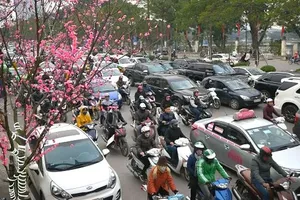In Tien Giang and Ben Tre provinces, farmers are actively pruning affected trees, destroying infested leaves, and spraying pesticides on the treetops to combat the caterpillars. Some coconut groves have been irreversibly damaged and had to be completely cut down. Farmers are making concentrated efforts to save the remaining groves by regularly spraying pesticides.
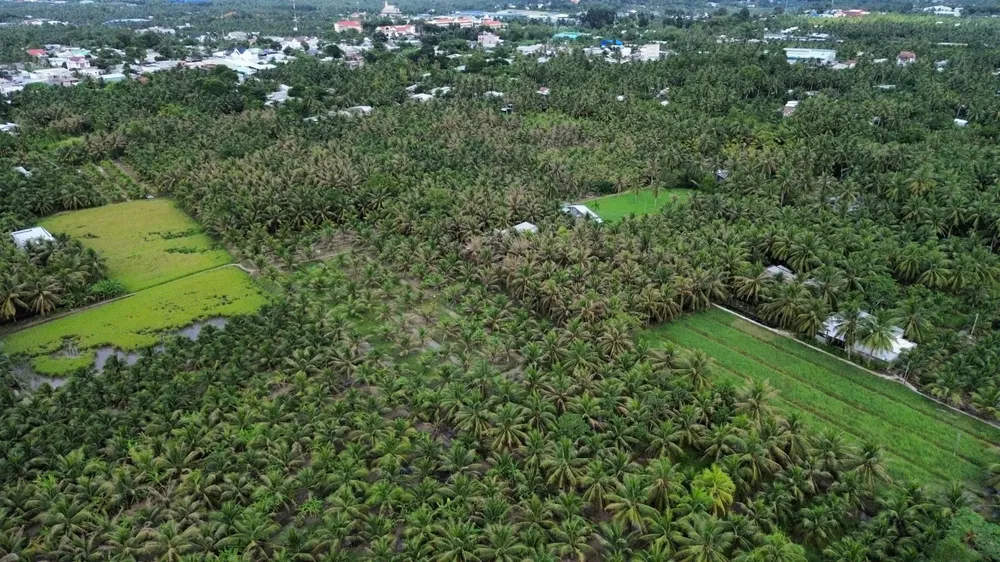
In Tien Giang Province, approximately 279.28 hectares of coconut trees have been affected by the black-headed caterpillar, including 245.61 hectares in Cho Gao District, 33.1 hectares in Tan Phu Dong, and 0.67 hectares in Go Cong Tay, an increase of 242.12 hectares compared to 2023.
Xuan Dong Commune in Cho Gao District is the hardest-hit area in Tien Giang. According to Mr. Nguyen Van Muoi, Chairman of the People's Committee of Xuan Dong Commune, around 220 hectares of coconut trees have been infested, with damage levels primarily ranging between 30 percent and 40 percent. So far, farmers have sprayed pesticides at least once, with some spraying as many as four times.
Additionally, the commune has organized multiple training sessions to instruct farmers on prevention and treatment methods for black-headed caterpillar infestations. Efforts have been made to raise awareness, encouraging farmers to spray pesticides to combat the pest proactively.
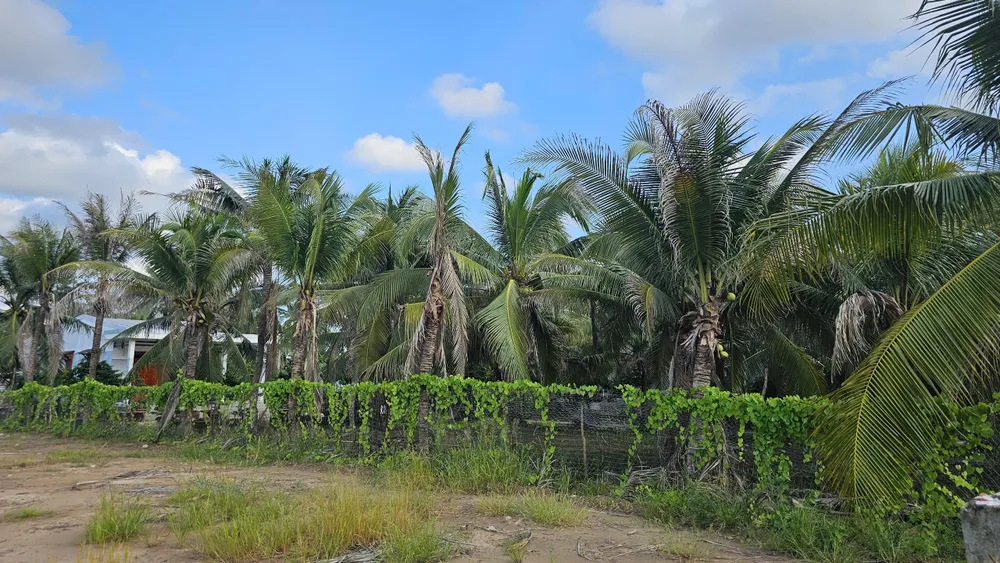
In light of this situation, the Tien Giang Plant Protection Department has coordinated with local agricultural offices and district agricultural service centers to conduct training sessions, providing guidance on managing black-headed caterpillars in coconut trees.
There has been an increased focus on distributing leaflets and educating farmers about pest control procedures. Farmers are urged to carry out simultaneous pesticide spraying on infested coconut groves and to use light traps and natural predators like red-eyed wasps to control the spread. Severely damaged, non-recoverable groves should be cut down and destroyed to eliminate the infestation.
Mr. Nguyen Van Man, Director of the Tien Giang Department of Agriculture and Rural Development, shared that the agricultural sector would continue to conduct on-site training sessions and workshops to address the caterpillar problem. Farmers are being encouraged to cut down and burn old, unproductive coconut trees to eradicate potential breeding grounds. The Southern Regional Plant Protection Center has also trained farmers on using natural predators to control the caterpillars.
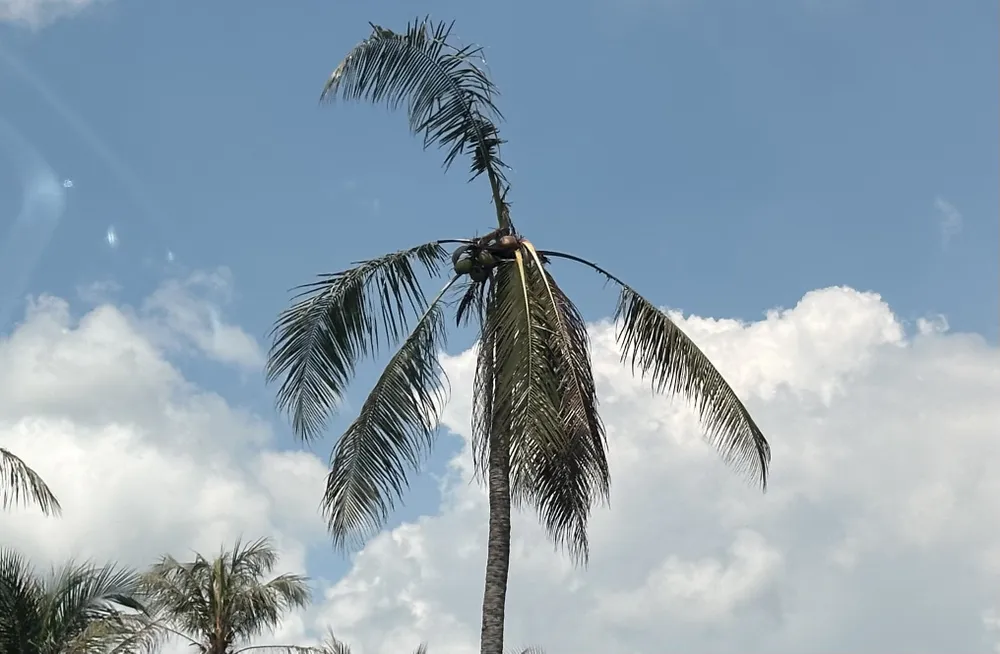
Currently, Tien Giang Province has approximately 22,400 hectares of coconut plantations, with an estimated annual yield of 246,600 tons. These plantations are primarily concentrated in districts such as Cho Gao (7,700 hectares), Chau Thanh (5,000 hectares), Tan Phu Dong (2,700 hectares), Go Cong Tay (2,500 hectares), and My Tho City (1,700 hectares).
Similarly, in Ben Tre Province, black-headed caterpillars have attacked many coconut groves, causing leaves to burn and turn yellow. The agricultural sector and farmers are urgently taking measures to control the pest. In addition to using pesticides, agricultural authorities have regularly released parasitoid wasps to protect coconut groves with mild infestations.
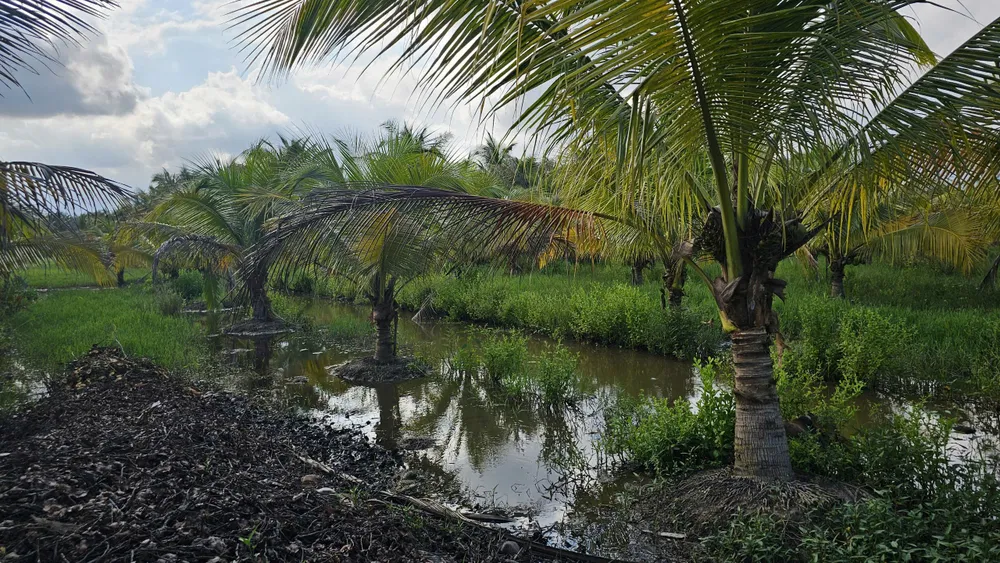
Ben Tre boasts the largest coconut-growing area in the country, with nearly 80,000 hectares. Since the beginning of the year, more than 592 hectares of coconut trees have been infested by black-headed caterpillars, an increase of over 327 hectares. Of this, 295 hectares are lightly infested, 162 hectares are moderately infested, and 134 hectares are heavily infested.
Mr. Nguyen Van Men, Chief of the Office of the Ben Tre People's Committee, reported that from early 2024 until now, a total of 615.99 hectares in the province have been affected by the pest. In response, the province has released 135.96 million parasitoid wasps to combat the caterpillar. Efforts are being intensified to quickly detect and isolate affected areas, aiming to prevent the infestation from spreading further across coconut plantations.













